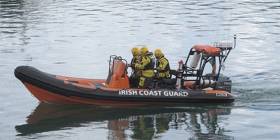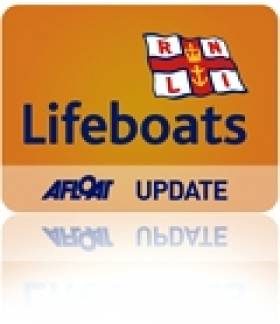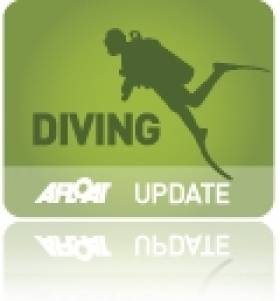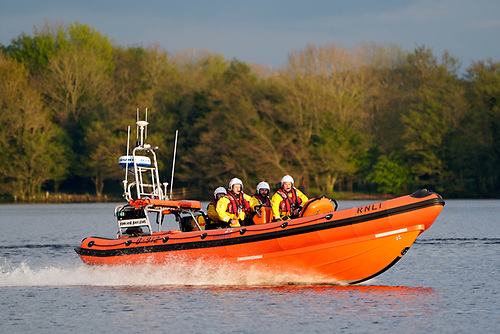Displaying items by tag: Diver
Strangford Lough Trials Eco-Friendly Boat Moorings
At the end of March, the Strangford and Lecale Partnership started a new pilot study of Advanced Mooring Systems in Strangford Lough. It is the first study of its kind in Northern Ireland, and these eco-friendly moorings will avoid or limit the damage caused to the seafloor habitats and species by the swinging chain of traditional boat moorings.
The Partnership covers the whole of the Strangford and Lecale Area of Outstanding Natural Beauty, taking in much of the Ards Peninsula, Strangford Lough and Lecale. It brings together statutory authorities to improve heritage management across the whole of the area and is underpinned by the Department of the Environment, Northern Ireland Environment Agency, Newry Mourne and Down District Council and Ards and North Down Borough Council.

Two different types of advanced mooring systems were installed in Ballyhenry Bay following condition assessments of the Seagrass around the existing swinging chain moorings. The site is just north of Portaferry on the eastern shore of the Lough near the Narrows.
 A Seaflex Mooring unit about to be deployed
A Seaflex Mooring unit about to be deployed
The diver video recorded the seagrass condition around the entire circumference of the mooring, the old mooring was removed and the new mooring installed.
The two different systems being trialled are Seaflex, an elastic and environmentally friendly mooring solution and Sterling which uses floats to keep the chain off the seabed.
The area will be resurveyed next year to see which has been more successful in allowing the seagrass to re-establish. This work is being carried out by Cuan Marine Services Ltd, in partnership with local mooring owners, and funded through the NIEA Challenge Fund. This fund supports the Water Quality Improvement Strand of the Environmental Challenge Fund which seeks to support projects that help people connect with and seek improvements to their local aquatic environment.
 Cuan Marine Services are carrying out the Strangford Lough study
Cuan Marine Services are carrying out the Strangford Lough study
Cuan Marine Services were employed by Newry Mourne and Down District Council to deliver a feasibility study ‘Potential for advanced-moorings as management option for Strangford Lough Marine Protected Areas (MPA)’
This afternoon the Irish Coast Guard were alerted to concerns for a diver who was at the slip at Howth Harbour, Co Dublin.
The local Coast Guard unit in Howth were tasked and were quickly on scene.
On arrival the team were met with a male diver in his 40s who had experienced a rapid ascent while returning to the surface from 15 meters depth. With the possibility of decompression sickness the Coast Guard team provided medical assistance until the arrival of an ambulance.
The casualty was taken to Beaumont Hospital where his condition is stable.
#rnil – As Afloat.ie reported earlier Crosshaven Lifeboat were paged at 6.08pm (14 June) to a Dive Boat near Roches Point with an unresponsive diver on Board. The lifeboat met with the Dive Boat off Fort Camden and transferred volunteer Ian Venner, who immediately took over first Aid. The lifeboat was met ashore by Dr John Murphy and Crosshaven Coast Guard. First Aid continued until the patient was handed over to the ambulance service. Helicopter Rescue 117 from Waterford was also tasked.
Sadly, the diver later died in Cork University Hospital. Our Sympathies go to his Family and Friends.
The Allure of the Deep, Is Diving for You?
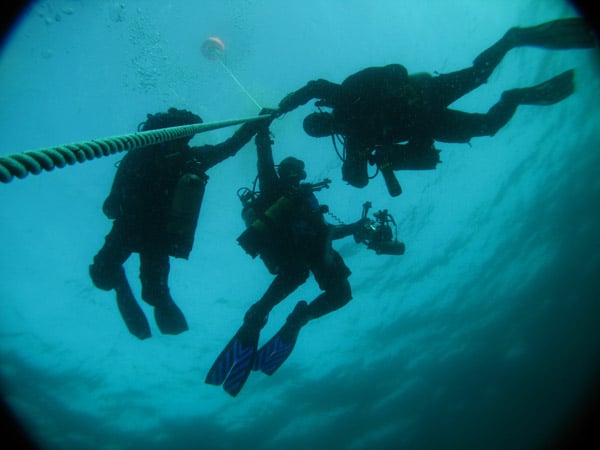
Divers completing a decompression stop after a 40 meter dive to the wreck of the ssFoilia off the Waterford Coast


























